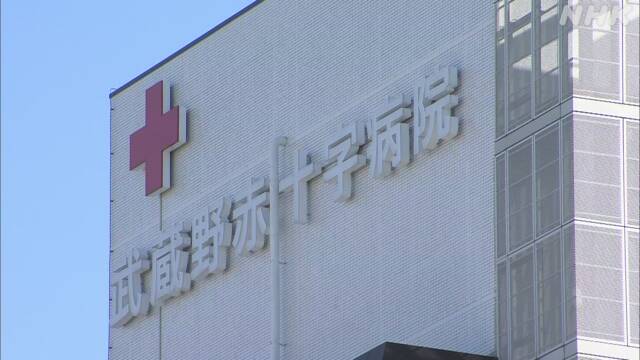New Corona The current status of infectious disease designated medical institutions in Tokyo is May 08 at 18:08
Hospitals in Tokyo, which accept patients infected with the new coronavirus, had been fully occupied for a while due to the spread of the infection, but this month it has been gradually alleviated. On the other hand, the proportion of patients who need assistance has increased, and the burden on doctors and nurses is still heavy because of the risk of nosocomial infections.
The Musashino Red Cross Hospital, a designated medical institution for infectious diseases in Tokyo's Musashino City, has been accepting patients infected with the new coronavirus since late January.
With the expansion of the number of infected people, we have increased the number of beds to 45 beds, which is about double the initial number, and we have been responding, but in the peak month last month, we were always full.
After that, however, the number of newly hospitalized patients decreased, and the number of inpatients gradually decreased due to the Tokyo Metropolitan Government's efforts to treat patients with mild illness at home and at accommodations.
Currently, there are 13 patients with moderate illness who are hospitalized in a specialized ward, which is about one-third of the peak time.
However, about half of the patients who are hospitalized need dialysis or have chronic illnesses in their hearts, etc., and need personal assistance such as meals and toilets.
Because of this, nurses have more opportunities to come into contact with patients and increase the risk of infection, so they always take great care when providing assistance.
Although the hospital is taking as much measures as possible to prevent nosocomial infections, by the end of last month it was discovered that two nurses working in a dedicated ward were infected with the new coronavirus.
At the hospital, we closed the dedicated ward, converted the pediatric ward into a new coronavirus ward, and had it transferred to inpatients.
In addition, all sheets and pillows used in the ward were discarded and new purchases were made, and thorough measures were taken to prevent new infections.
Hospitals always wear protective clothing and medical masks when performing general emergency operations and when examining emergency patients, and strive for thorough safety management, but even patients other than corona do not know who is infected. , He says he is always tense.
Izumi Namiki, director of the Musashino Red Cross Hospital, said, "Although there is room for acceptance, the burden and stress on doctors, nurses, and staff has not been reduced. It's hard to find out if someone is infected with corona right away. , And I think it is important to create a system that enables long-term work. "

